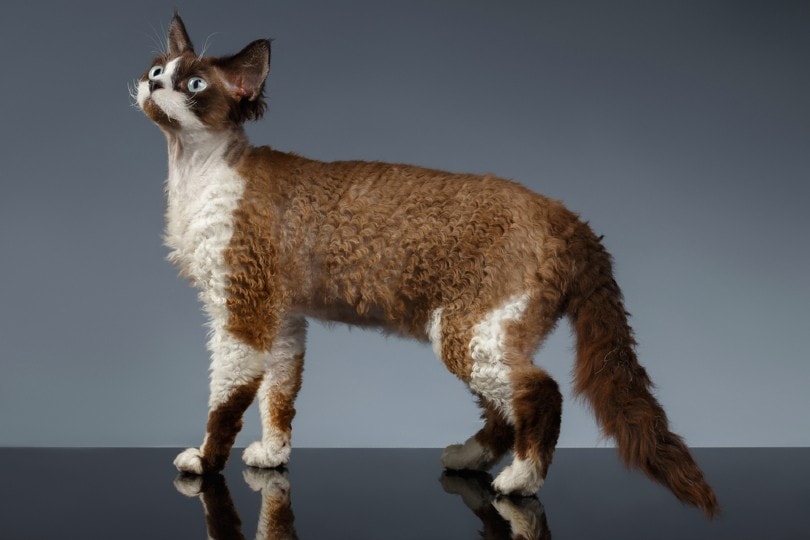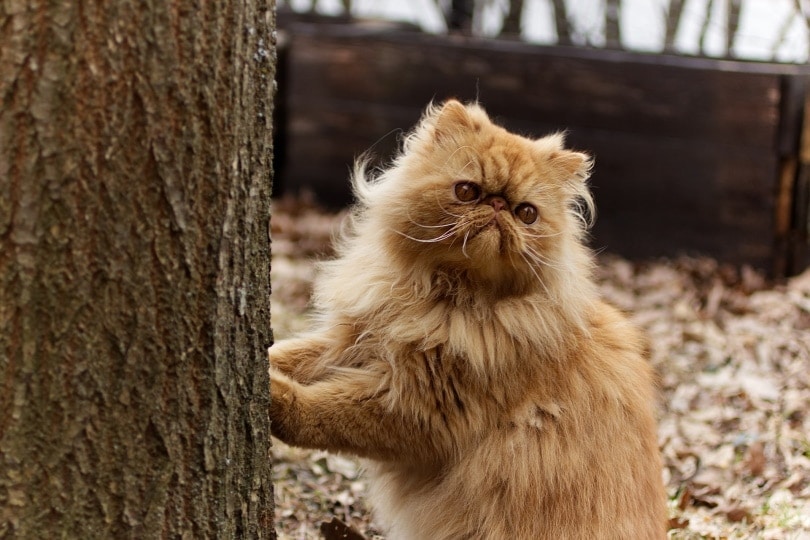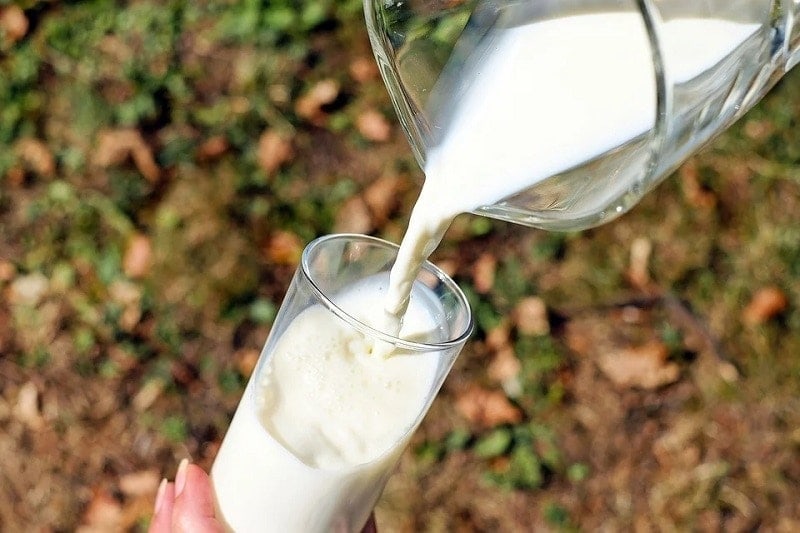Can Cats Eat Apricots? What You Need to Know!

Updated on
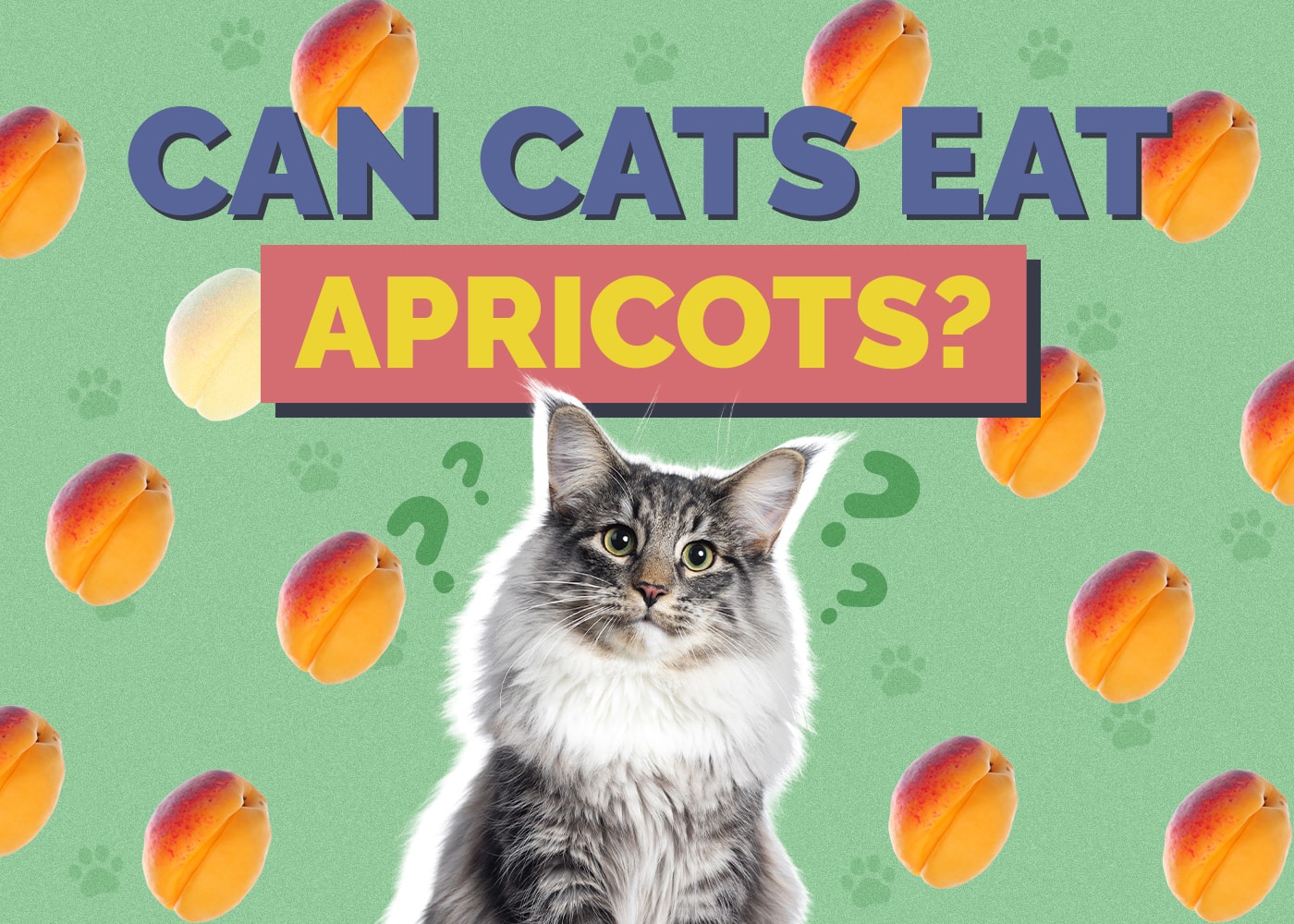
Apricots, also known as Armenian plums, are a very nutritious stone fruit that is a great source of antioxidants. As humans, we know that apricots are delicious and offer us a wide variety of health benefits but as cat owners, you may be left wondering if apricots are something cats can eat.
The answer to this isn’t so black and white. While the skin and flesh of the apricot are nontoxic, the pit, stem, and leaves are toxic and can cause serious harm. We’ll look further into this below.
 Should I Feed Apricot to My Cat?
Should I Feed Apricot to My Cat?
As mentioned, the stem, leaves, and pit of the apricot are highly toxic to cats and should never be offered or even left out where the cat can get to them. There are very serious side effects that can occur if this part of the fruit is consumed, it even can be fatal if not treated right away.
As for the skin and flesh of the apricot, it is non-toxic to cats and would not be dangerous if they were to eat some. However, cats are obligate carnivores and there is no real reason to offer them apricots as a treat. Cats are lacking in sweet taste receptors, so they are typically not drawn to the sweet taste of fruit like other animals.
If your cat enjoys eating apricot and you wish to offer it as a treat, it is best to do so in small amounts and only occasionally. A few bites are all that their digestive systems can tolerate since they are not designed to consume plant matter.

Do Apricots Offer Any Health Benefits to Cats?
While apricots are extremely nutritious for humans, obligate carnivores like cats get all their nutritional needs directly from meat. A cat’s digestive system is not designed for any type of plant material, even when ingested, they are not able to properly absorb the nutrients of fruits and vegetables as herbivores and omnivores can.
Dangers of the Stem, Leaves, and Pit
The stems, leaves, and pit of the apricot contain cyanide, which is highly poisonous. While all of these parts of the apricot contain dangerous levels of cyanide, the levels are at their highest when the fruit begins to wilt. If your cat were to ingest any one of these, the cyanide begins to block the cells from taking in oxygen, which is why this is such a dangerous and potentially fatal situation.
What Is Cyanide Poisoning?
If you are certain that your cat has eaten any part of a stem, leaf, or pit of an apricot, immediate medical attention is required. If this occurs after normal business hours for your veterinarian, you will need to contact emergency veterinary services. The quicker you get veterinary help, the better your cat’s chances of survival and recovery.
If cyanide poison is left untreated, severe symptoms will occur and your cat will go into respiratory distress. This can lead to shock and may end up causing death. It is not only apricots that contain cyanide, plums, peaches, and cherries are some other examples of fruits that have toxic leaves, stems, and pits.
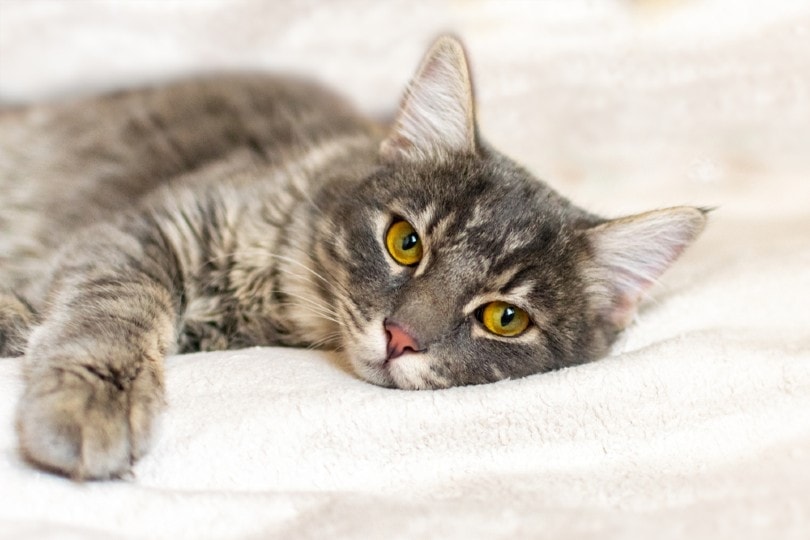
Symptoms of Cyanide Poisoning in Cats
It is very important to get your cat to the veterinarian immediately if they are displaying any symptoms of poisoning.
- Dilated pupils
- Difficulty breathing
- Excessive panting
- Vomiting
- Bright red mucous membranes
Proper Diet for Cats
Cats are obligate carnivores that are designed to get all their needed nutrients directly from meat sources. Our domesticated cats are evolved hunters, just like their wild counterparts. They require very high amounts of protein, moderate fat content, and minimal carbohydrates.
A cat’s digestive system is not built to digest plant material. Adding any types of fruits, vegetables, or herbs into their foods or as supplemental treats is not necessary. They are unable to absorb the nutrients properly from these sources, so they add no significant health benefits.
Most cat foods on the market today are designed to provide your cat with its needed nutritional requirements. It is important to note that some foods are filled with unhealthy and unnecessary ingredients. For this reason, it is important to speak with your veterinarian regarding the best meal plan for your cat and check the ingredient label on potential food purchases.
Commercial Food Options
Commercial cat foods come in a wide variety of forms, and it is up to you, as the owner, to choose the form that works best for you and your cat.
It is important to learn how to read the labels and check ingredients to ensure they are getting good quality food with the correct balance of nutrition. If you have any questions, your veterinary staff can help you determine the best foods and even school you on their nutritional requirements.
- Dry kibble
- Wet canned food
- Fresh cuts/Fresh ground
- Freeze-dried kibble
Now that you know what you can safely feed your cat, it’s just as important to find a bowl that supports their health and well-being. With whisker-friendly bowls and a wide tray to catch any spills, our Hepper NomNom Cat Bowl is our favorite option.
 Conclusion
Conclusion
Cats can only eat the skin and flesh of an apricot, as it is nontoxic and will cause no harm. While there is no need to supplement your cat’s diet with apricot, if your cat fancies this fruit, there is nothing wrong with feeding them small bites occasionally. Since cats are obligate carnivores, their systems are not meant for the digestion of plant material so you can rest assured they will get all their nutrients from their high-quality cat food.
The most important thing to keep in mind regarding apricots is that cats or any other pets should not have access to their stems, leaves, or pits. Due to the toxicity of the cyanide in these parts of the apricot. Cyanide poisoning is potentially deadly and is considered an emergency. Always speak to your veterinarian before offering any new foods to your cat and reach out immediately if cyanide poisoning is suspected.
Featured Image Credit: Couleur, Pixabay
 Should I Feed Apricot to My Cat?
Should I Feed Apricot to My Cat?
